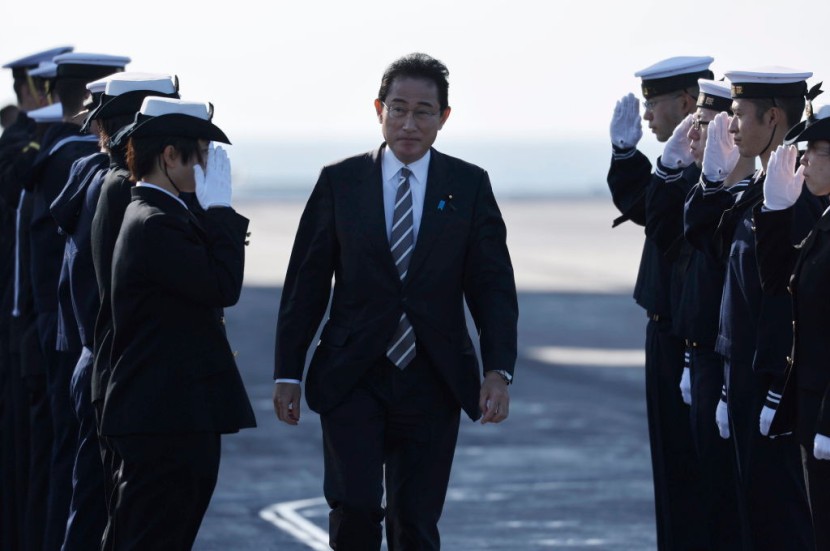
Japan announced its most extensive military development since World War Two on Friday, including $320 billion to acquire missiles that can hit China, as regional tensions and Russia's Ukraine incursion raise war risks.
Based on existing expenditures, the expansive, five-year plan would elevate Japan to the position of third-largest military spender in the world, after the United States and China, according to Reuters.
According to Prime Minister Fumio Kishida, the measure is his response to the myriad security problems that Japan is facing. He added that the country and its people are now experiencing a "turning point in history."
The administration of Fumio Kishida is concerned that Russia has created a dangerous precedent that may lead China to attack Taiwan, which would endanger Japanese islands, block shipments of sophisticated semiconductors, and potentially place a grip on sea routes supplying Middle Eastern oil.
Despite that the Japanese military is regarded as one of the most advanced and potent armies in the world, Japan's weapons are designed to be used against foes that are close to its islands.
According to public broadcaster NHK, Japan's new defense plan would provide the country with weapons like US-made Tomahawk missiles that may be used to target the bases from which potential attackers like China, North Korea, or Russia.
Yoji Koda, an ex-admiral of the Maritime Self-Defense Force who headed the Japanese fleet in 2008, remarked that the measure brings Japan to "a new direction" and, if properly implemented, the country's Self-Defense Forces will become a "world-class" force of the highest caliber.
The government also announced plans to increase transportation capacity, store replacement parts and other weaponry, and enhance cyber warfare capabilities of the Japanese military. Japan relinquished the right and means to wage war in its postwar constitution written by the United States.
Japan Standing Up to China, North Korea
According to public broadcaster NHK, Japan's military reform considers China as its most significant strategic threat.
While claiming sovereignty over the Senkaku Islands, a series of uninhabited islands in the Sea of Japan, also known as the East Sea, and controlled by Japan, longtime foe China has been expanding its naval and aviation capabilities in regions close to Japan.
Japan scrambles jets practically daily in reaction to Chinese planes flying close to its airspace, while Chinese ships have been often making excursions near the islands, which Beijing names the Diaoyus.
China has increased its military pressure on Taiwan, whose stability Japanese officials have deemed essential to the security of Japan itself. In reaction to US House Speaker Nancy Pelosi's August visit to Taipei, Beijing fired five missiles into Japan's exclusive economic zone near Taiwan, as reported by CNN.
Japan has been observing the expansion of North Korea's missile stockpile from its west. In addition to the 34 missile tests conducted by Pyongyang this year, the country also launched a missile over Japan in October, a move that Kishida condemned as "outrageous" since it was the first time this had happened in five years.
Since the start of the Ukraine conflict, Russia has built up on islands to the north of Japan, raising Tokyo's concerns that it may need to protect its borders from several threats.
Japanese People Support PM Kishida's Military Development Steps
According to the BBC, polls indicate that the Japanese public is now largely in favor of some kind of increased military development.
Japan may launch a counterstrike if it is attacked or an ally country is attacked, there are no effective methods to resist an assault, and force is limited. A source said the Japanese government will "judge" given individual and unique situations when an opponent's assault began.
Under its pacifist Constitution, according to Kyodo News, Japan has long held that having the ability to attack enemy bases is at the very least permitted.
Related Article: Feared Surge of COVID-19 Cases in China Is Now Happening, and It's 'Impossible To Track'
© 2026 HNGN, All rights reserved. Do not reproduce without permission.








